#tragic hero
Text
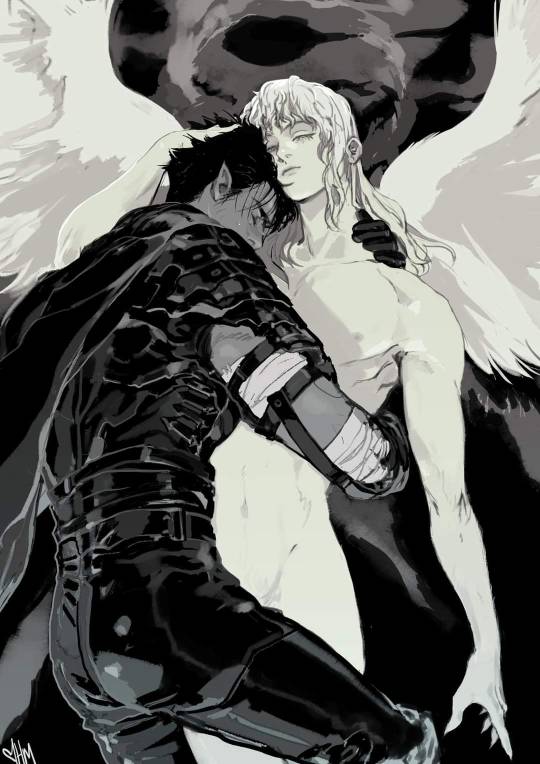
Source added thanks to @ayustar
463 notes
·
View notes
Text




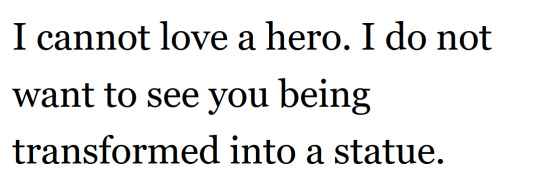
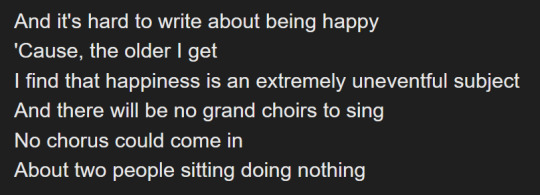
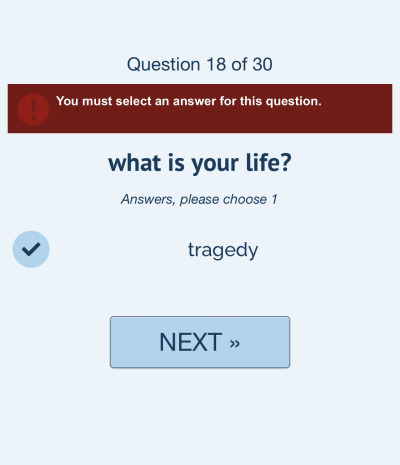
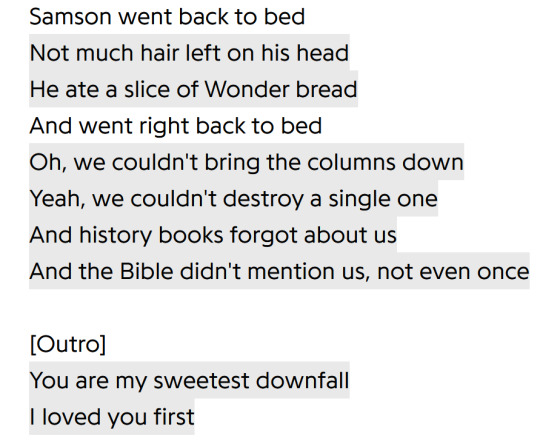
the inevitable tragedy of the hero (stay hidden)
F. Scott Fitzgerald / Madeline Miller / @crazyw3irdo / @pencap / Christa Wolf trans. Jan van Heurck / Florence + the Machine / Regina Spektor
#the concept of being invisible to history being the ideal outcome...#heroes#poetry#quotes#tragedy#tragic hero#my content
248 notes
·
View notes
Text
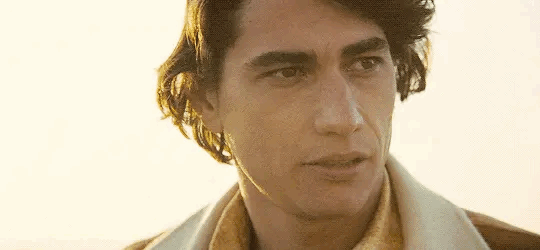

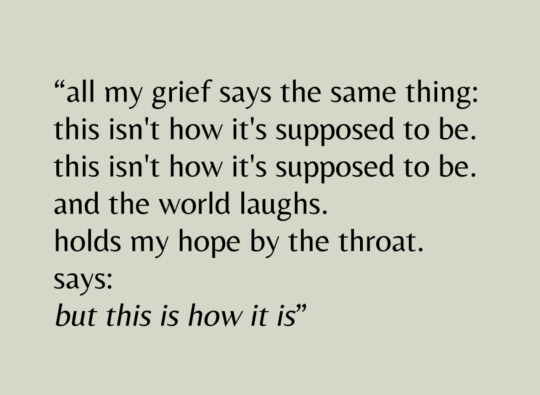






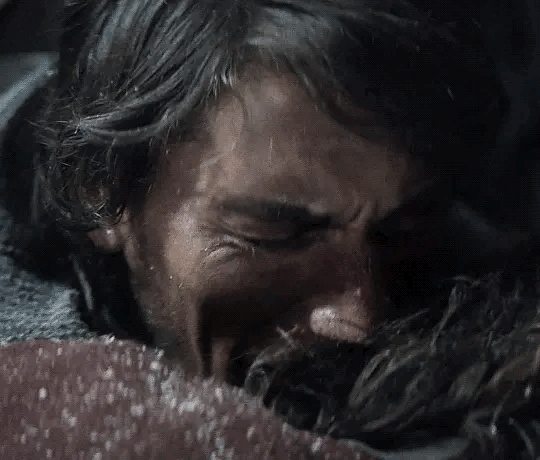


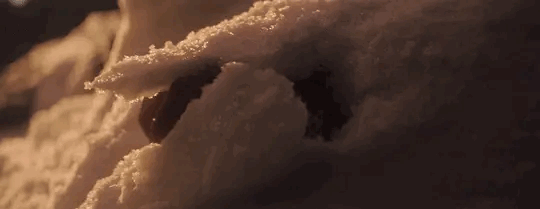


“Se que yo no voy a volver, pero está bien, estoy tranquilo. Estoy preparado para lo que viene. Los dos lo estamos. Y me pone muy feliz saber que ustedes si lo van a lograr. Eso me pone contento, Nando.”
“I know I'm not coming back, but it's okay, I'm calm. I'm ready for what's coming. We both are. And it makes me very happy to know that you are all going to make it. That makes me happy, Nando.”
society of the snow (2023)
numa turcatti: on tragic heroes.
the gods show up - michael kinnucan | the truth about grief - fortesa latifi | the invisible life of addie larue - v.e. schwab | strangers - ethel cain | dear layal - hala alyan | ??? | o’death - frances molina | icarus - the crane wives
#lsdln#enzo vogrincic#la sociedad de la nieve#poetry#web weaving#society of the snow#netflix#agustin pardella#matias recalt#quotes#numa turcatti#numa#love#friends#friendship#love like a dog#tragic love#tragic hero#web weaves#poems and quotes#aanon04
358 notes
·
View notes
Text
One of the things I love about Gundam Wing is that its ENTIRE CAST is made up of characters who SHOULD be doomed by their narrative--some are based on character archetypes that usually are doomed by their respective narratives, others are based on tragic real world historical figures--and (almost) every single one of those doomed characters is saved as a result of interacting with the other doomed characters. I once said “Gundam Wing is a very long anti-suicide PSA” and that pretty much sums it up.
#I may write an essay expanding on this#gundam wing#doomed by the narrative#tragic hero#mobile suit gundam wing#new mobile report gundam wing#heero yuy#duo maxwell#trowa barton#quatre raberba winner#chang wufei#zechs marquise#it's all very shakespearean actually#still have that essay in my drafts somewhere
311 notes
·
View notes
Text
I'm really tired of seeing lots of people loudly proclaiming that Paul Atreide is the real villain of the story, when clearly he's not.
First of all, there is no fundamentally bad guy and good guy in this story (even if the Arkonnen are the ones who can most be considered as such, and who are clearly bad people). It's a world with a rotten system where everyone ends up fighting for power.
Paul in all this is a tragic hero. Not a villain.
It follows the classic pattern of tragedy with the system of prophecy. But he's definitely not a hero or / and even less a villain.
Paul is above all a tragic hero, that all.
A lot of people compare him to Anakin, but for me it's more of a surface level comparison, as Paul doesn't really succumb to the outright dark side.
Many people will disagree, but that's what I think.
70 notes
·
View notes
Text
Heavy Lies the Crown: Rhysand, greatness, and the pressures of power
Or: the librarian’s daughter, former playwright, licensed counselor mashup of my nightmares dreams because I am vast, I contain multitudes.
No content warnings and no real HOFAS spoilers, I don't think, other than that he's in it but I feel like you know that by now. Spoilers for Breaking Bad (lol).
---
In working on my current fic (on ao3 here!) I've been thinking a lot about Rhysand and how he really goes off the rails in ACOSF and HOFAS. It's easy to chalk it up to poor writing, but I like the challenge of trying to make it make sense. What are Rhys’ motivations, truly? What would explain the vast array of heinous shit he does the text tells us is justified?
Rhys is shown over and over to be quite Machiavellian ('ends justify the means' dude, who was maybe writing satire). It's easy to list the times he shows this. The 50 year Velaris hostage situation. The bargain UTM with Feyre. The Weaver's cottage. Stealing the Book from Tarquin. CLARE BEDDOR. Infiltrating people's minds. Torture. Assassination. Allying with Kier. Concealing his wife's medical information. Being an ass to people in general. According to Mr. Machiavelli, any action is warranted if it the goal it achieves is morally important enough.
It seems like Rhys can justify anything to himself if he believes it will serve the greatest good at the end of the day. He does so many things with the air of “it’s for your own good” or “you’ll understand why one day” but that day never.. comes? Not yet anyway, which begs the question: is he that unself-aware, or is there a longer game he’s playing that all of these minor skirmishes are leading up to? What if he knows what's coming? And what kind of cause or threat would feel so great he could justify everything he does up to this point?
Okay I'm gonna talk about Aristotelean literary structure, please don't leave me.
The idea of a tragic hero is a character whose downfall is inevitable but who fights against it anyway. Hamlet is a classic example of a tragic hero, Oedipus being the de facto first, Walter White from Breaking Bad a more modern version. We see Walt learn he’s going to die in the first episode, in the middle he does a bunch of stuff to prevent his physical death (cancer) and metaphorical death (failure/obscurity), and then both his body and reputation die in the last episode as a direct result of his attempts to avoid fate. It’s blissful Aristotelean symmetry. *chef’s kiss*
Every tragic hero has hamartia, more commonly known as a ‘fatal flaw’. In Hamlet, his fatal flaw is procrastination, and his delays create space for all kinds of the fuck shit he was trying to prevent. It’s important to note that hamartia is by design a neutral term - not so much a flaw, but a trait, motivation, or decision that sets off the chain of events the character is trying to avoid. Tragedies have occurred equally from too much love as too much hate, and doing nothing is just as much a decision as doing something. The word itself comes from the Greek for ‘to miss the mark’. To try and fail, the backbone of tragedy.
One of the most common hamartia is hubris, a modern synonym for arrogance but which more specifically means an outsized belief in one’s ability to affect and control the future. Well-known tragic heroes taken down by hubris include our boy Walter White, Tony Soprano, Viktor Frankenstein, Achilles, Jay Gatsby, Kendall from Succession. It exists in real life, too: Lance Armstrong is a perfect example of a modern tragic hero brought down by hubris. And what do all these men have in common? Power, via money, fame, strength, the state, intellect, violence etc.
I’ve been enjoying looking at Rhysand through this tragic hero lens because while it doesn’t really make him more sympathetic, it does make his actions easier to understand logically, which is its own kind of humanization. If Rhysand is aware of a prophesied or fated event sometime in the future and is pulling the cosmic strings now, it must be incredibly important, like annihilation-level important, which is so much pressure.
So he grows to maturity with an understanding that he will one day have to face this intense evil that could completely destroy his world, and it plants in him a hubris. He believes that his immense power grants him a certain amount of influence automatically. And honestly, is he wrong?
And this is where it’s important to think about how power makes people weird. Power gives people a false sense of confidence in their actions and choices, because their status and privilege protect them from so many more consequences. In this way it’s easy to see how someone can get a big ego - no one is stopping me, so I must be doing well! Or: everything is going well for me, so I must be really killing it! I know I feel that way in the first tingles of hypomania, but hypomania is fundamentally a distortion of reality and I believe so is power.
Power not only gives people confidence but also access to make decisions for others. They begin to think they should share the success they’ve found by leading and guiding others to see how great it can be if you do what they say. Just look at one of those cringe 'billionaire morning routine' videos to see what I mean. It’s a very patronizing form of altruism, because the leader genuinely believes they have the people’s interest at heart. And I use the word patronizing intentionally - leaders have often referenced feeling paternal towards their people, Winston Churchill + FDR, 'God the Father'. Power and fatherhood have been linked for a long time. And direct from our girl Wikipedia, "paternalism is action that limits a person's or group's liberty or autonomy and is intended to promote their own good".
I was talking with a girlfriend of mine recently about how I think some men don’t have the experience of other people depending on them in a significant way until they get married and/or become fathers. Like, afab and femme people learn very early to be considerate of others, to think about how others feel, to act in ways that keep others happy, etc. This plants in us a sense of duty to perform in ways that please others, to smile, to create comfort and provide caretaking in every environment we enter. So by the time we get to marriage and motherhood, we already know how to put others’ needs before our own because we’ve been doing it from the jump.
For men, however, this can be a completely novel experience. And it seems like it's SO HEAVY FOR THEM. George ‘Father of his Country’ Washington just wanted to go back to Virginia the whole time he was President. So many men talk about the pressures of being a provider and their families depending on them in a way women don’t, and I think it’s because for the first time others truly depend on them and they don’t know how to handle it.
In response, they either shove down their emotions as patriarchy demands and have a midlife crisis, or they abdicate that responsibility and go completely absent physically and/or emotionally to continue living for themselves. (Obviously there are good men and dads out there, and bless you if you’re lucky enough to know, have, or be one.)
And this aspect of power feels relevant because from the text it seems like Rhysand is unraveling. Between Feyre, the baby, the Trove, Nesta and being threatened by her power, Koschei, Bryce, the whole High King shit - I think he’s starting to crack under the pressure. And honestly, I’m kind of surprised it didn’t happen before now.
According to Aristotle, the tragic hero must:
Be significant (virtuous/capable/powerful/important etc.)
Be flawed
Suffer a reversal of fortune.
Rhysie boy definitely ticks the first two. I wonder what it would look like to get to three? I don’t think Sarah has the balls, but it’s definitely enhanced my reading experience and given me a lot of interesting things to think about.
Okay that's all I've got. Love ya, see ya soon xx
#prythian university#acotar#acosf#rhys critical#sjm critical#tragic hero#lit crit#i love thinking way too deeply about things
36 notes
·
View notes
Text
Coriolanus is one of Shakespeare's last and hence most well-crafted tragedies. Given its criticism of the forces that drive social inequality and famine, it is a lesser known play.
This is from Act II Scene II where the protagonist should be elected but, as two ushers describe, instead falls foul of political manipulation:
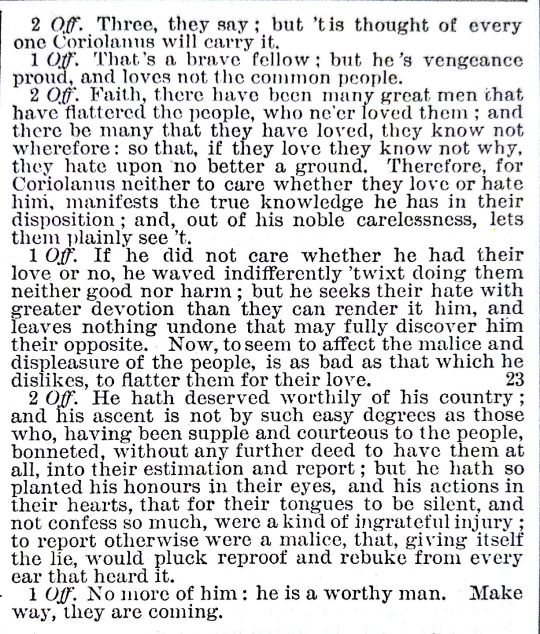
The first officer questions Coriolanus' motives and patriotism, which the second calls populist ideology. The first officer then portrays Coriolanus' as acting specifically to draw the hatred of popular opinion. The second points to this being political spin of envious politicians.
The judgement is therefore mixed. The public believe it is hubris, whereas the commentators believe it is the envy of the patrician class.
I personally think the key part of this exchange is the second officer stating that 'every one' thinks Coriolanus will win, i.e., including political rivals.
#shakespeare#coriolanus#spilled thoughts#writing#spilled ink#literature#plays#tragic hero#tragedy#life quotes#populism#politics#thriller#text post#antiquity#ancient rome#roman republic#manipulation
33 notes
·
View notes
Text
im sorry but how is klaus in the most tragic character tournament but not five?? when five is like.. the tragic character of all time?? he was alone at the end of the world for decades?? he watched his family die multiple times??? he wants nothing more than to be with his family but they keep separating???? he keeps going through hell just for things to never work out?????? HOW IS FIVE NOT THERE
#like okay yes klaus is tragic too#but five is#the fucking#tragic hero#he is probably gonna have a tragic hero death in season 4#how in the actual fuck is he not in that tournament#five is a literal walking tragedy i-#jump speaks#five hargreeves
63 notes
·
View notes
Text
I sobbed like a baby.
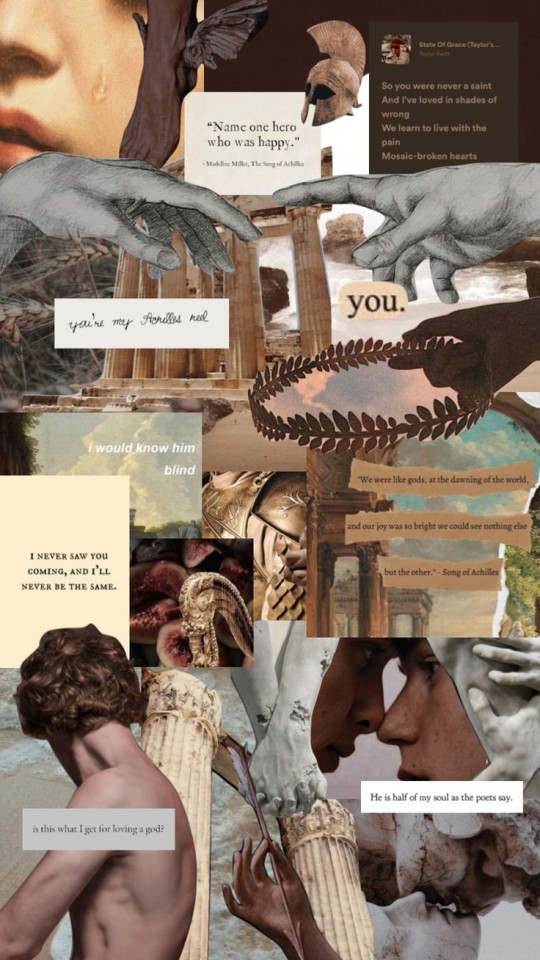
#soa#song of achilles#songofachilles#books#booktok#mlm#achilles#patroclus#achilles and patroclus#madeline miller#i love this book#icriedoverthisbook#lgbtq#greek mythology#greek tragedy#tragic hero#battleofachilles
173 notes
·
View notes
Text
Wow.
Denis Villeneuve was able to do successfully in 5.5 hours what D&D botched over 80+ hours.
When the problem is the storyteller, not the story...
#dark messiah arc#paul atreides#daenerys targaryen#anti daenerys targaryen#because her stans are children#dune#a song of ice and fire#game of thrones#anti game of thrones#anti d&d#anti dany stans#denis villeneuve#dune part 2#villian protagonist#tragic villain#tragic hero#asoiaf
34 notes
·
View notes
Text
A Tragic Hero=Anakin Skywalker
What is A Tragic Hero?
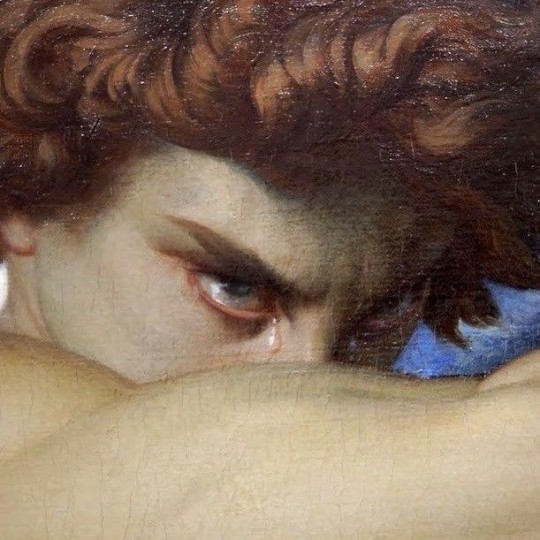
A tragic hero is a character in a literary work, typically a play, who possesses admirable qualities but also has a fatal flaw that leads to their downfall. They are often faced with a conflict or dilemma that they cannot overcome due to their own flaws or errors in judgment. Despite their good intentions, their actions ultimately result in their own destruction or downfall. Tragic heroes evoke both pity and fear in the audience, as they are relatable and their tragic fate serves as a cautionary tale.
Anakin Skywalker
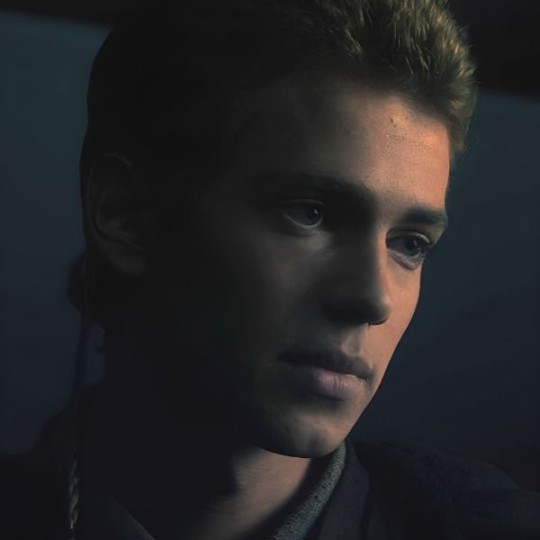

Anakin Skywalker from the Star Wars saga is often considered a tragic hero. He possesses several qualities that align with the archetype of a tragic hero.
Firstly, Anakin is a character with great potential and admirable qualities. He is incredibly talented and skilled, displaying exceptional prowess as a Jedi Knight. He is brave, loyal, and has a strong desire to protect those he cares about.
However, Anakin's fatal flaw is his deep-seated fear of loss and his attachment to his loved ones. This fear and attachment drive him to make impulsive and reckless decisions, leading him down a path of darkness. He is seduced by the promises of power and control offered by the dark side of the Force, ultimately becoming Darth Vader.
Anakin's downfall is tragic because it results from his inner struggle and conflicting emotions. He is torn between his love for his family and his duty as a Jedi. The choices he makes, motivated by his fear and desire to prevent loss, ultimately lead to the destruction of his relationships, his identity, and his own physical and emotional well-being.
Anakin's story evokes pity and fear in the audience as we witness his descent into darkness and the tragic consequences that follow. His journey serves as a cautionary tale about the dangers of unchecked emotions and the consequences of succumbing to one's own flaws.
Anakin Skywalker=The Tragic Hero
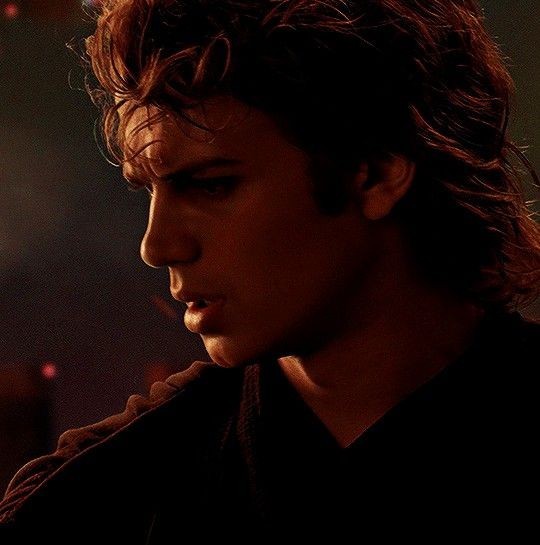
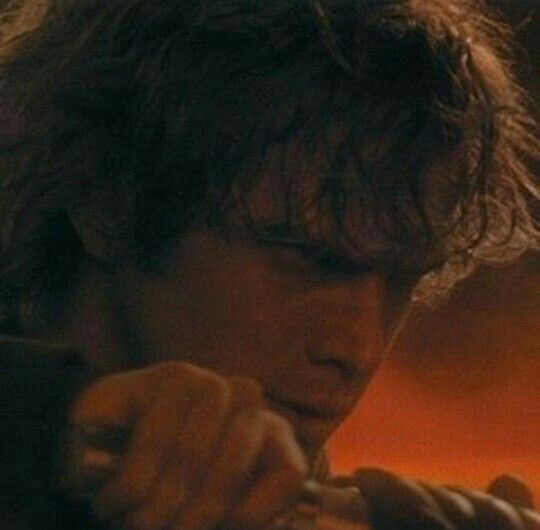
#padawan anakin#anakin#tragic hero#dialy thoughts#sad thoughts#anikin skywalker#deep thoughts in the shower
34 notes
·
View notes
Text
Look, I understand people are upset about the end of Will and Elizabeth's arcs in the original Pirates of the Caribbean trilogy. I won't lie and say I didn't want to see some Will as the Dutchman's captain and some Pirate King Elizabeth BAMF on the high seas. I'm not even saying the writers are right... I'm just saying that the way they set up Will and Elizabeth's arc's, it makes sense.
They're tragic heroes: it's like John Proctor or Reverend Hale in the Crucible or Iron Man during the Infinity Saga or even Thackery Binx from Hocus Pocus. They're heroes working towards a noble goal, but they either can't obtain it or when they can, it doesn't go according to plan, and they have to make some sacrifices.
For Elizabeth it's a little more obvious. She's the girl who's trapped in her social status. In the first movie, her corset, a very real symbol of her status, literally suffocates her. It nearly kills her. Only once she sees the world of piracy and gets swept up in that world and allows herself to be changed by it does she see any smattering of freedom. Her whole goal is to get freedom, for her people (Port Royal) and her love (Will) in CotBP, even at the price of her own freedom (agreeing to marry Norrington if he saved Will). In DMC it's for herself (literally), Will again, and her father. That whole movie she is constantly fighting to keep herself and Will out of prison and danger. In AWE, she's fighting for her own freedom at times, but she soon finds herself the harbinger of freedom for a new golden age of piracy against Cutler Beckett and the East India Trading Co, who in the Pirates universe are canonically slave runners. She is searching for freedom in a very wide scope.
For Will, it's a little less obvious. He is also striving for freedom, but often not his own. He fights to help free Elizabeth during CotBP, and in DMC he's literally fighting to keep his own freedom and win the freedom of Elizabeth. Even when that means turning in a (sort of) friend (Jack). When he meets his father in DMC, his mission of freedom for those he loves expands in two parallel directions, Bootstrap tells Elizabeth as much in the brig of the Dutchman in AWE. The director and writers of AWE made that very clear in Elizabeth and Will's direction. One of my biggest pet peeves with that movie is the lack of a relationship between Will and Elizabeth, but it does make sense. It demonstrates Will's dilemma. His search for freedom is much more tangible, and on a very narrow scope. It also demonstrates Elizabeth's dilemma, where she feels that the freedom Will craves for his father will separate them for good. So, she turns to piracy, because freedom is all she has left by act II of AWE.
Both are searching for freedom, but both are tied down by duty. Elizabeth becomes the Pirate King, Will the Captain of the Dutchman. Both bound by their own duty, although the only duty we see them both bound too tangibly is Will's. Isn't it ironic that in the end, the choice to kill Davy Jones isn't Will's? Sure, it was his intention, but Jack wrapped his hand around the knife and dropped the hand that felled the heart. Jack - the pirate - an embodiment of freedom for both characters in CotBP (he saves Elizabeth from her corset and is the inciting incident into Will beginning his quest for Elizabeth) is the one who chains them to Will's curse? Narratively, it makes sense. Elizabeth has just become the free-est we've seen her in any of the movies (and I will die on this hill) and Will's only just literally been freed from the clutches of the EICo. And even if you did argue that Elizabeth still had her freedom as Pirate King, it can be easily argued that she lost her freedom the day she decided to keep and raise Henry. Both of them end up chained by Will's curse - one to land, one to the sea. All on their search for freedom. And Jack, that symbol of freedom (or rather, a symbol of piracy that for both characters ends up being a symbol of freedom), is the one who chains them to land or sea.
Now I am all for Henry, I actually think he had some great potential pre-Deppo-osition trial, and I think it speaks to Elizabeth's character that she was willing to wait and stayed on land for her child (who she easily could've taken her anger out on, though that doesn't appear to be the case). It can even be argued she stayed on land for Will to, as he gave her his heart to guard, a very fragile heart that if stabbed, ended her husband (this is one of the final demonstrations of their mended relationship, but that's a different topic for another time). Will got a very short stick in this fight, but Elizabeth got an equally short, if not shorter stick. Chained to the sea, destined to see your wife a max of seven more days before her death, and the reverse true for Elizabeth, instead she is arguably forced by society to keep and raise the boy who reminds her of the husband she'll never be sure she'll see again.
That's why William and Elizabeth Turner - The Captain of the Flying Dutchman and the Pirate King - are tragic heroes. In striving for freedom, they became trapped by duties, obligations, and burdens that they didn't even get a say in. In the end, not every happy ending is a good ending. And while the original Pirates trilogy didn't have a happy ending, it had a good one, as far as the narrative was concerned (Do I like this ending? Yes. Personally, I think it works and it gives me that kind-of-icky-kind-of-satisfying pit in my stomach that Hocus Pocus did back when there wasn't a sequel. Maybe it's not the ending everyone wanted, but for the story being told, it's the right one).
Thanks for coming to my little rant! I used to love doing these literary analysis essays in English my junior and senior years of high school. Over analyzing media, especially film and tv, is something I quiet enjoy. Plus, I might do a foray into video essays one day, so I figured I could use some practice. This is something that's been bouncing around in my head since I first watched AWE. The original Pirates Trilogy is just so good at symbolism, I'll probably put more stuff out here eventually raving about it. For now though, this is it.
#pirates of the caribbean#curse of the black pearl#dead man's chest#at worlds end#will turner#elizabeth swann#willabeth#willabeth is my otp#will turner x elizabeth swann#will x elizabeth#literary analysis#media analysis#tragic hero#heroes journey#it's just a little rant#a baby video essay script#and ity bity ted talk maybe?#i just couldn't keep this one in#couldn't help myself#ao3 author#jack sparrow
31 notes
·
View notes
Text
thinking about reynie if he went bad. if he leaned into his manipulative side. if he played with everyone like a game a chess. if he became what he hated. if he fell into hubris. if he became the tragic hero.
15 notes
·
View notes
Text

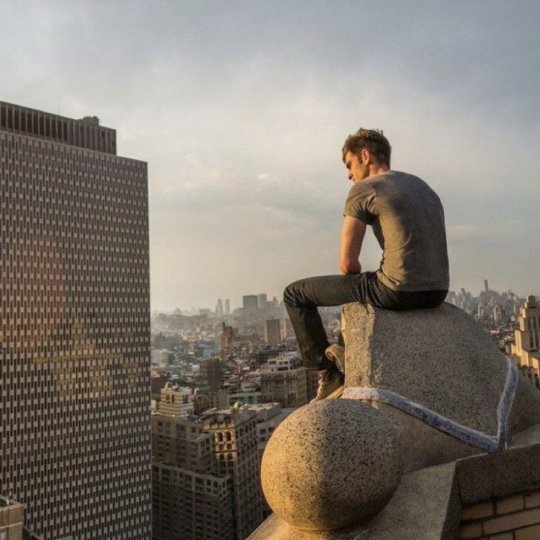


ANDREW GARFIELD
aka Peter Parker stay to top of building [deleted scene] from "The Amazing Spider-Man 2" (2014, dir Mark Webb)
This scene alone portrays Peter Parkers depressive disorder without even saying a word. Andrew did an amazing work here. One of the best scenes and they have deleted it. Screw u Sony.
TASM is like a slice of life movie in a super hero movie, and the third film about Peter’s life after the tragedy, was robbed from us.
(X)
#andrew garfield#deleted scene#screw u sony#sony i’ll never forgive you for depriving me of the third film#sony i hate you#andrew garfield you're amazing#peter parker#spider man#tasm 2#the amazing spider man 2#the amazing spider man: rise of electro#tasm peter parker#tasm peter#tasm spiderman#andrew peter parker#andrew peter#andrew spiderman#andrew garfield peter parker#andrew garfield spiderman#webbverse#sonyverse#marvel#depressive disorder#tragic hero#sincericida
13 notes
·
View notes
Text


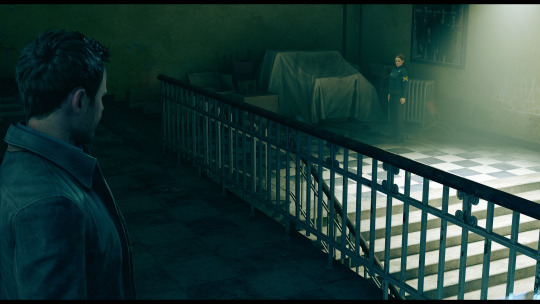

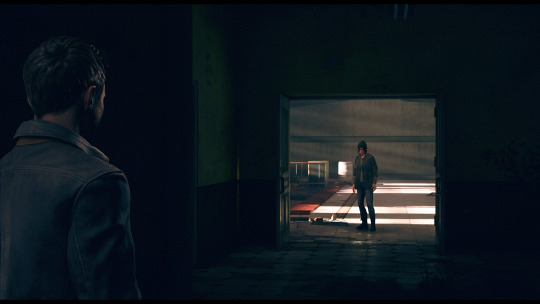
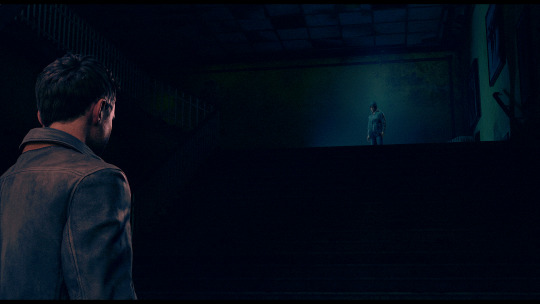
#virtual photography#jack joyce#quantum break#beth wilder#time travel#tragic hero#courtney hope#remedy games
14 notes
·
View notes
Text
help I’m thinking about Ahsoka meeting the definition of a tragic hero
[loosely defined as a sympathetic but imperfect protagonist who suffers some kind of downfall because of a tragic flaw]
I think the brainworms haven’t latched onto this before just cuz it’s not my go-to lens for anyone happening to be standing next to Anakin Freaking Skywalker, but while her "downfall" is less intense than Anakin's I think she meets the bar as much as he does.
Out-of-universe she's literally destined to fail because any character added to Anakin's arc in the Year of Our Lord 2008 1) can't prevent him from falling and 2) can't redeem him and that's a pretty heckin tragic arc to give your 14-year-old character right off the bat.
The only ways to make that less tragic are to have them like each other less, or to have her realize he's on a tragic arc and choose to get away from him for that reason... and they quadruple down on exactly the opposite of that
Every single thing that happens to Ahsoka for three years teaches her that everyone will disappoint her and let her down EXCEPT ANAKIN, to the point where she makes him her one constant in the universe. That leads directly to the Maul confrontation scene (which strongly mirrors the scene with Anakin and Palpatine in Palpatine's office), where she's given a choice and chooses wrong because of her tragic flaw, which is loyalty to Anakin.
Except it's so much more batshit than that because it's also the same "join me and together we will defeat a greater evil" pitch that star wars fantasy does over and over and over but in this case and this case only SHE SHOULD HAVE TAKEN IT. But my the audience’s yelling-at-the-screen response to that is driven by the fact the TCW s7 came out a solid FORTY YEARS after we learned how all these choices turned out. So honestly her tragic hero-ness is 80% dramatic irony. Which is also very Star Wars.
But thinking about this has gotten me feral about Ahsoka and Luke again because the fact that Luke puts all his money on Vader is absolutely insane. Luke is betting EVERYTHING with no evidence that it's going to work out for him, and it pays off. He freaking WINS because of that. Meanwhile Ahsoka has so, so many reasons to bet everything on Anakin, and she does, and she loses everything.
your faith in your friends is yours
#anyway I rewatched the phantom apprentice and I guess I'm still not over it#I just think she's Neat#long post#tragic hero#Ahsoka Tano#maul#ahsoka and anakin#ahsoka and luke#ahsoka and maul#Luke Skywalker#Darth Vader#luke and vader#palpatine#phantom apprentice#sw rots
62 notes
·
View notes